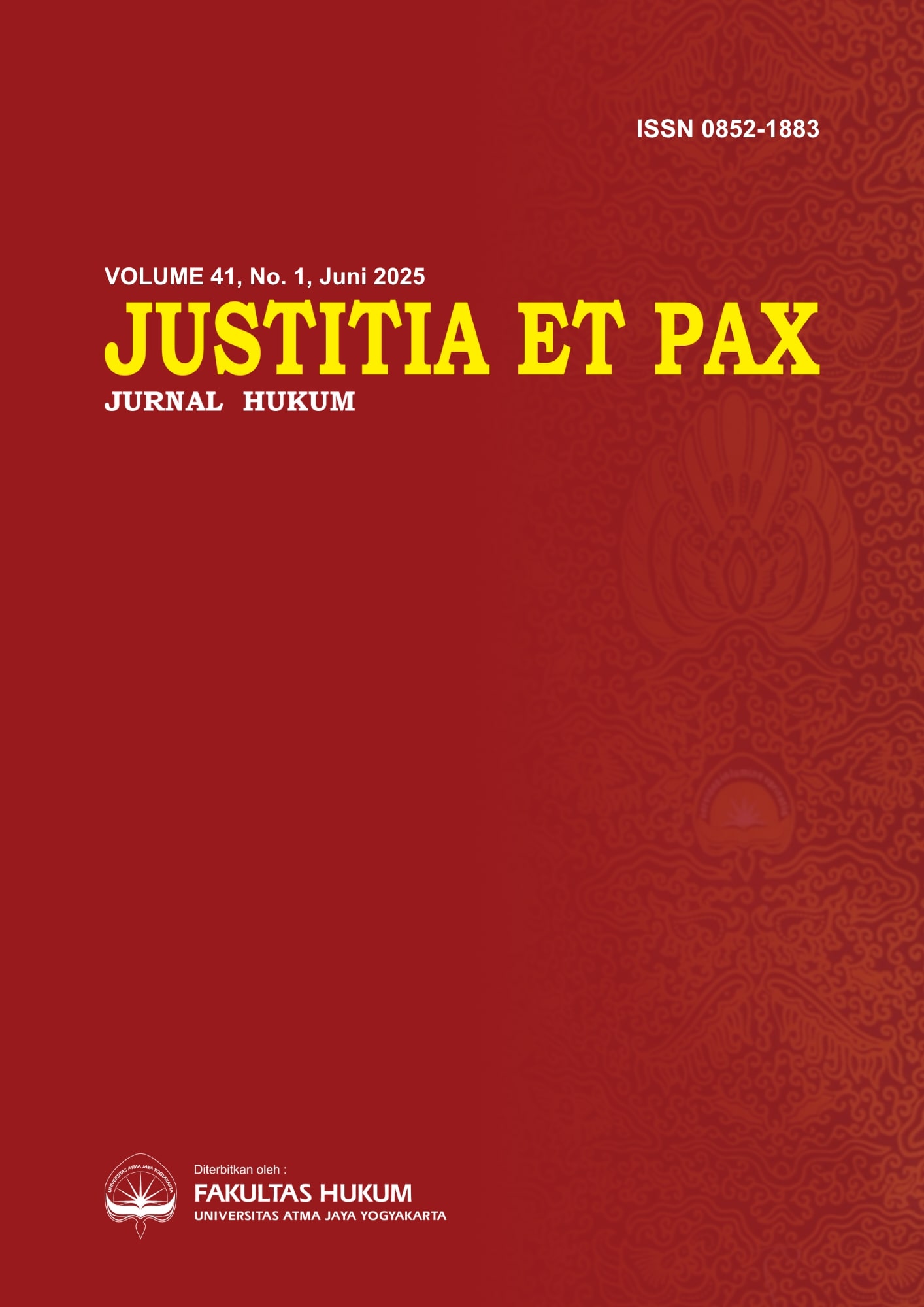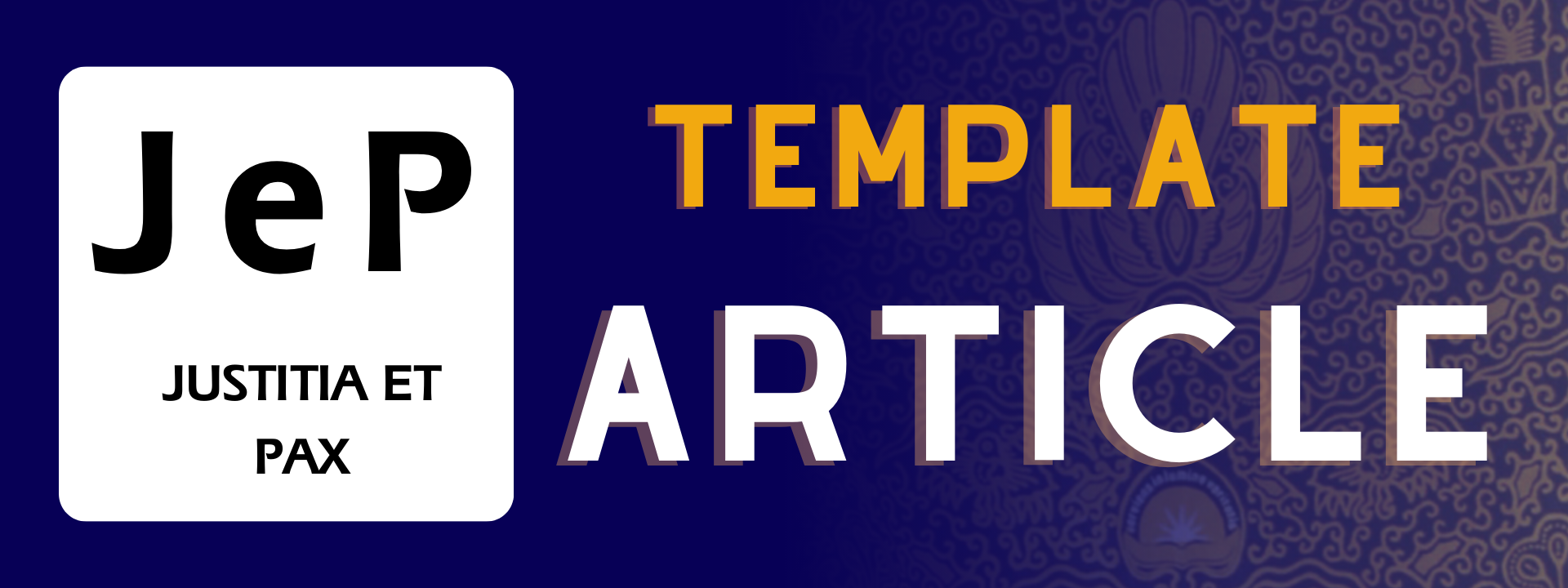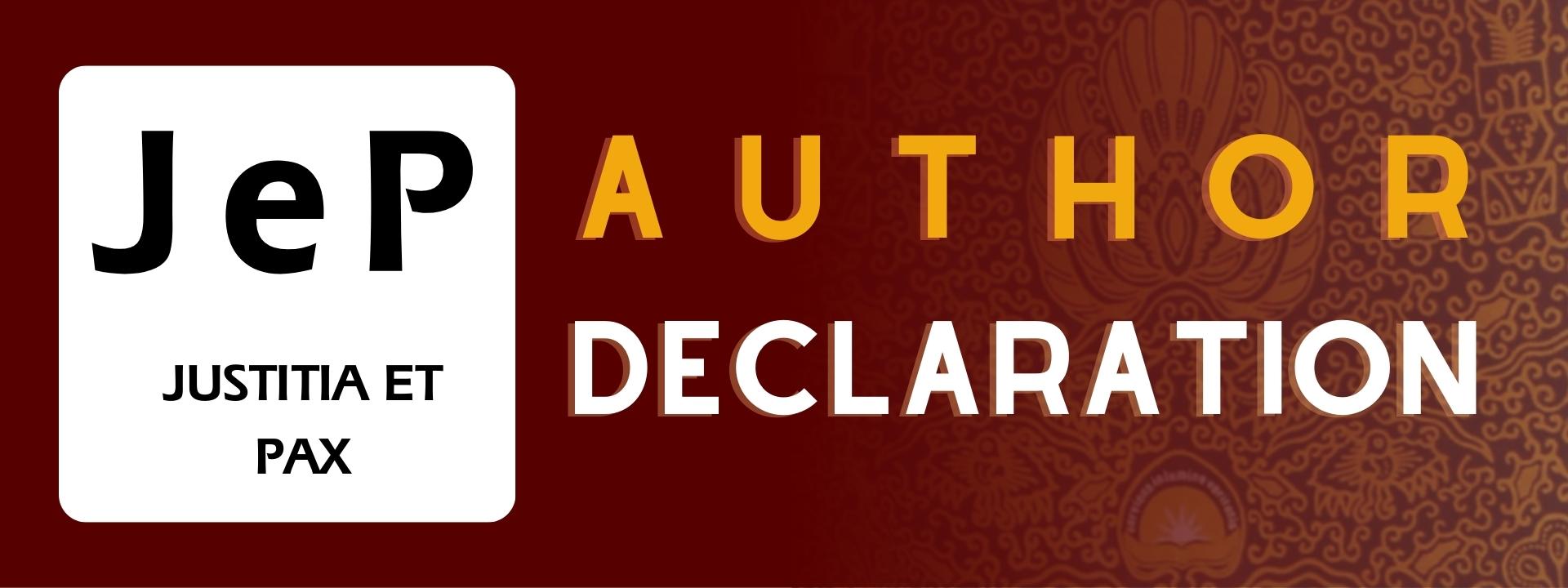DAMPAK UNDANG-UNDANG CIPTA KERJA TERHADAP INVESTASI ASING: TINJAUAN HUKUM DAN PRAKTIS
DOI:
https://doi.org/10.24002/jep.v41i1.9997Keywords:
Foreign Direct Investment (FDI), Grandfathering, Investment Law, Job Creation Law, Legal CertaintyAbstract
The Job Creation Law or Omnibus Law is a significant reform in Indonesian investment law that aims to increase the attractiveness of foreign direct investment (FDI) by simplifying regulations and providing legal certainty. To strengthen Indonesia's position in the global market, the Job Creation Law introduces the Online Single Submission (OSS) system to accelerate licensing and a positive investment list that opens up more sectors to foreign investors. This paper analyzes the impact of these policies on FDI flows with a focus on the technology and renewable energy sectors that received a significant boost from fiscal incentives and the grandfathering concept that protects investment from sudden policy changes. Despite positive results, implementing the Job Creation Law faces challenges, especially in harmonizing regulations between the central and regional governments. This article recommends improving incentives in strategic sectors and harmonizing regulations to optimize the benefits of the Job Creation Law so that Indonesia can achieve greater economic potential and increase its competitiveness on the international stage.
References
Buku
Baker, C., 2017, Competing for Foreign Direct Investment: Emerging Markets Strategies. Oxford University Press, Oxford.
Djamali, R. Abdoel, 2017, Pengantar Hukum Indonesia, PT. Raja Grafindo Persada, Jakarta.
Fuadi, Munir, 2017, Hukum tentang Lembaga Pembiayaan dalam Teori dan Praktik, PT Citra Aditya Bakti, Bandung.
INTI Media, 2023, Laporan Dampak Perubahan Regulasi terhadap Investasi di Sektor Prioritas Nasional 2023, INTI Media, Jakarta.
Kimura, F., Lee, H.-H., dan Okamoto, Y, 2021, Emerging Markets in Southeast Asia: The Role of FDI in Economic Growth, Springer, Singapore.
Rahmah, M., 2020, Hukum Investasi, Penerbit PT Gramedia, Jakarta.
Scott, W. R., 2018, Institutions and Organizations: Ideas, Interests, and Identities, 5th edition, SAGE Publications, Thousand Oaks, CA.
Thite, M., dan Russell, B., 2022, Southeast Asia's Economic Transformation and FDI: Opportunities and Challenges, Routledge, London.
Zamboni, Mauro, 2017, Legal Certainty and Globalization: A Theoretical Overview, Routledge, New York.
Artikel Jurnal
Batten, Jonathan A, "Financial Crisis, Bank Diversification, and Financial Stability: OECD Countries", International Review of Economics & Finance, Vol. 65, 2020.
Brown, Michael, “Legal Certainty and Foreign Investment: Evidence from Southeast Asia”, Asian Economic Policy Review, Vol. 15, No. 2, 2020.
Cantah, W. G., Brafu-Insaidoo, E. A., Wiafe, dan A. Adams, "Institutional Theories of FDI: Evidence from Developing Economies", International Journal of Economics and Finance Studies, Vol. 10, No. 2, 2018.
Doe, John, dan Jane Smith, “The Impact of Regulatory Reforms on Foreign Direct Investment Inflows in Emerging Markets”, Journal of International Business Studies, Vol. 52, No. 3, 2021.
Fauzi, Ahmad, “Analisis Dampak Undang-Undang Cipta Kerja terhadap Investasi Asing di Indonesia”, Jurnal Hukum dan Pembangunan, Vol. 50, No. 1, 2020.
Meyer, K.E., dan Peng, M.W., “Theoretical Foundations of Emerging Economy Business Research”, Journal of International Business Studies, Vol. 47, No. 1, 2016.
Narula, Rajneesh, dan Verbeke, Alain, “Globalization and Investment: Redefining the Competitive Advantage of Flexible Regulatory Environments”, Journal of International Business Studies, Vol. 46, No. 9, 2015.
Nurhayati, Siti, “Peran Omnibus Law dalam Meningkatkan Daya Saing Investasi Indonesia”, Jurnal Ekonomi dan Kebijakan Publik, Vol. 12, No. 2, 2021.
Ramamurti, Ravi, “The Role of Transparent Institutions in Attracting Foreign Direct Investment in Emerging Markets”, International Journal of Business and Economics, Vol. 14, No. 1, 2020.
Rugman, A. M., dan Verbeke, A., “Revisiting the Eclectic Paradigm: From the Internationalization of Markets to the Regionalization of Multinational Enterprise”, Journal of International Business Studies, Vol. 47, No. 1, 2016.
Sorensen, Juliet, “Ideals Without Illusions: Corruption and the Future of a Democratic North Africa”, Northwestern Journal of International Human Rights, Vol. 10, No. 4, 2018.
Sornarajah, M., "International Investment Law and Stability in Regulatory Environment", Journal of International Business Law, Vol. 18, No. 3, 2020.
Internet
Badan Koordinasi Penanaman Modal (BKPM), “Realisasi Investasi Tumbuh 16.5%, Kementerian Investasi Tunjukkan Optimisme di 2023”, https://www.bkpm.go.id/id/info/siaran-pers/realisasi-investasi-tumbuh-16-5-kementerian-investasi-tunjukkan-optimisme-di-2023, diakses pada 12 Januari 2024.
CNBC Indonesia, “Reformasi Tahap II: Deregulasi dan Investasi”, https://www.cnbcindonesia.com/opini/20201123183600-14-204038/reformasi-tahap-ii-deregulasi-dan-investasi, diakses pada 23 November 2020.
World Bank, “Indonesia Economic Prospects: Boosting the Recovery”, https://www.worldbank.org/in/indonesia/publication/indonesia-economic-prospects, diakses pada 11 Januari 2024.
Peraturan Perundang-Undangan
Undang-Undang Nomor 39 Tahun 1999 tentang Hak Asasi Manusia (Lembaran Negara Republik Indonesia Tahun 1999 Nomor 165).
Undang-Undang Nomor 11 Tahun 2020 tentang Cipta Kerja (Lembaran Negara Republik Indonesia Tahun 2020 Nomor 245).
Peraturan Presiden Nomor 10 Tahun 2021 tentang Bidang Usaha Penanaman Modal (Lembaran Negara Republik Indonesia Tahun 2021 Nomor 61).
Downloads
Published
Issue
Section
License

This work is licensed under a Creative Commons Attribution-NonCommercial-ShareAlike 4.0 International License.
Authors who publish with this journal agree to the following terms:
- Authors retain copyright and grant the journal right of first publication with the work simultaneously licensed under a Creative Commons Attribution License that allows others to share the work with an acknowledgement of the work's authorship and initial publication in this journal.
- Authors are able to enter into separate, additional contractual arrangements for the non-exclusive distribution of the journal's published version of the work (e.g., post it to an institutional repository or publish it in a book), with an acknowledgement of its initial publication in this journal.
- Authors are permitted and encouraged to post their work online (e.g., in institutional repositories or on their website) prior to and during the submission process, as it can lead to productive exchanges, as well as earlier and greater citation of published work (See The Effect of Open Access).

This work is licensed under a Creative Commons Attribution-NonCommercial-ShareAlike 4.0 International License.




















